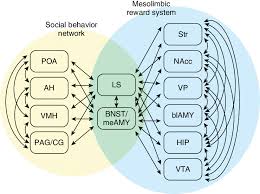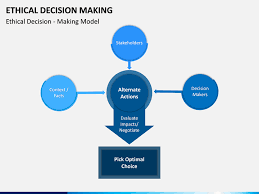The Challenge of Indecisiveness: Understanding Indecisive People
Indecisiveness is a common trait that many people struggle with in various aspects of their lives. From choosing what to eat for dinner to making important life decisions, indecisive individuals often find themselves stuck in a cycle of uncertainty and hesitation.
One of the main reasons behind indecisiveness is the fear of making the wrong choice. People who are indecisive may overanalyze situations, weigh the pros and cons endlessly, and still find it difficult to come to a decision. This fear of making a mistake can paralyze them and prevent them from moving forward.
Another factor that contributes to indecisiveness is perfectionism. Indecisive individuals may have high standards for themselves and fear that any decision they make will not meet those standards. This constant need for perfection can lead to procrastination and indecision.
Furthermore, indecisive people may struggle with low self-confidence or self-esteem. They may doubt their abilities to make the right choice and fear the consequences of making a wrong decision. This lack of confidence can further exacerbate their indecisiveness.
It is important to understand that being indecisive is not a character flaw but rather a common challenge that many people face. By recognizing the underlying reasons behind indecisiveness, individuals can work towards overcoming this obstacle and making more confident decisions in their lives.
Ultimately, overcoming indecisiveness requires practice, self-awareness, and a willingness to take risks. By learning to trust oneself, embracing imperfection, and accepting that not all decisions will be perfect, indecisive individuals can break free from the cycle of uncertainty and move forward with confidence.
7 Positive Traits of Indecisive Individuals
- Indecisive people tend to weigh all options carefully before making a decision.
- They are often empathetic and considerate of others’ opinions and feelings.
- Indecisiveness can lead to thorough research and analysis, resulting in well-informed decisions.
- They are open-minded and willing to explore different perspectives before coming to a conclusion.
- Indecisive individuals may be more cautious and less likely to take unnecessary risks.
- Their indecisiveness can lead to creativity as they think outside the box to find solutions.
- Indecisive people may seek advice from others, fostering collaboration and teamwork.
4 Drawbacks of Indecisiveness: Missed Opportunities, Stress, Self-Doubt, and Stagnation
- Indecisive people may miss out on opportunities due to their inability to make timely decisions.
- Their indecisiveness can lead to frustration and stress, both for themselves and those around them.
- Indecisive individuals may struggle with self-doubt and lack of confidence in their decision-making abilities.
- Their indecisiveness can result in a lack of progress or forward momentum in various aspects of their lives.
Indecisive people tend to weigh all options carefully before making a decision.
Indecisive individuals often exhibit the positive trait of carefully weighing all available options before reaching a decision. Their tendency to analyze and consider different possibilities can lead to more thoughtful and well-informed choices. By taking the time to evaluate various alternatives, indecisive people demonstrate a commitment to making thorough decisions that align with their values and goals. This deliberative approach can result in more successful outcomes and a greater sense of satisfaction with the decisions made.
They are often empathetic and considerate of others’ opinions and feelings.
Indecisive individuals often exhibit a proclivity towards empathy and consideration for others’ opinions and feelings. Their tendency to weigh multiple perspectives and options can stem from a genuine concern for how their decisions may impact those around them. This heightened sensitivity allows indecisive people to approach decision-making with a thoughtful and compassionate mindset, taking into account the thoughts and emotions of others involved. Their empathetic nature not only fosters stronger relationships but also contributes to a more inclusive and collaborative decision-making process.
Indecisiveness can lead to thorough research and analysis, resulting in well-informed decisions.
Indecisive individuals often excel in thorough research and analysis, as they strive to gather all relevant information before making a decision. This meticulous approach ensures that they are well-informed and have considered all angles before reaching a conclusion. By taking the time to delve deep into the details and weigh all options carefully, indecisive people can make thoughtful and well-founded decisions that are based on solid research and analysis.
They are open-minded and willing to explore different perspectives before coming to a conclusion.
Indecisive people often possess the valuable trait of being open-minded and willing to explore different perspectives before reaching a conclusion. Their inclination to consider various viewpoints and weigh different options thoroughly can lead to well-informed decisions that take into account a diverse range of factors. This open-mindedness allows indecisive individuals to approach situations with flexibility and adaptability, ultimately leading to more thoughtful and nuanced outcomes.
Indecisive individuals may be more cautious and less likely to take unnecessary risks.
Indecisive individuals may exhibit a positive trait of being more cautious and less likely to take unnecessary risks. Their tendency to carefully weigh options and consider potential outcomes can lead them to make more calculated decisions, avoiding impulsive actions that could have negative consequences. This cautious approach can be beneficial in situations where thorough consideration is needed, helping to minimize risks and ensure a more thoughtful decision-making process.
Their indecisiveness can lead to creativity as they think outside the box to find solutions.
Indecisive individuals often possess a unique ability to think outside the box and explore unconventional solutions due to their tendency to consider multiple perspectives and possibilities. This creative approach can lead to innovative ideas and problem-solving strategies that may not have been considered otherwise. Embracing their indecisiveness as a source of creativity can empower individuals to leverage their unique thought processes and discover new and inventive ways to tackle challenges.
Indecisive people may seek advice from others, fostering collaboration and teamwork.
Indecisive people have a unique advantage in their tendency to seek advice from others, which can lead to fostering collaboration and teamwork. By reaching out to others for input and guidance, indecisive individuals create opportunities for diverse perspectives and ideas to be considered. This collaborative approach not only helps in making more informed decisions but also builds stronger relationships and promotes teamwork among individuals working towards a common goal. Embracing the input of others can ultimately lead to more well-rounded decisions and a sense of unity within a team or community.
Indecisive people may miss out on opportunities due to their inability to make timely decisions.
Indecisive people may miss out on opportunities due to their inability to make timely decisions. When faced with choices, indecisive individuals may hesitate or delay making a decision, which can result in missing deadlines or losing out on valuable opportunities. This reluctance to commit to a course of action can lead to stagnation and prevent them from seizing important moments that could potentially benefit their personal or professional growth. It is crucial for indecisive individuals to recognize the impact of their hesitation on their ability to capitalize on opportunities and work towards developing more decisive decision-making skills.
Their indecisiveness can lead to frustration and stress, both for themselves and those around them.
Indecisive people often experience frustration and stress due to their inability to make decisions, which can also impact those around them. The constant wavering and uncertainty can create a sense of unease and tension in relationships, as others may become impatient or feel burdened by the indecisiveness. This con of indecisiveness not only affects the individual’s well-being but also strains interpersonal dynamics, highlighting the need for proactive strategies to address and overcome indecisiveness for a more harmonious and positive environment.
Indecisive individuals may struggle with self-doubt and lack of confidence in their decision-making abilities.
Indecisive individuals often grapple with self-doubt and a lack of confidence in their decision-making abilities. This constant uncertainty can lead to a cycle of second-guessing themselves, which can hinder their ability to make timely and effective decisions. The fear of making the wrong choice may further erode their confidence, making it challenging for them to trust their judgment and move forward with conviction. This lack of self-assurance can not only impede their personal growth but also impact their relationships and opportunities for success.
Their indecisiveness can result in a lack of progress or forward momentum in various aspects of their lives.
Indecisive people often face the con of experiencing a lack of progress or forward momentum in different areas of their lives. Their hesitation and inability to make decisions efficiently can lead to missed opportunities, delayed achievements, and a sense of stagnation. Without taking decisive actions, indecisive individuals may find themselves stuck in the same place, unable to move forward and reach their goals. This lack of progress can be frustrating and hinder their personal growth and success in both professional and personal endeavors.




